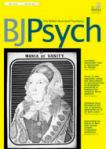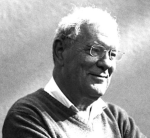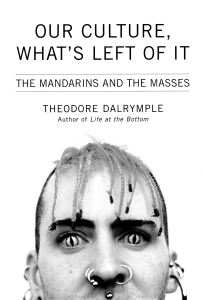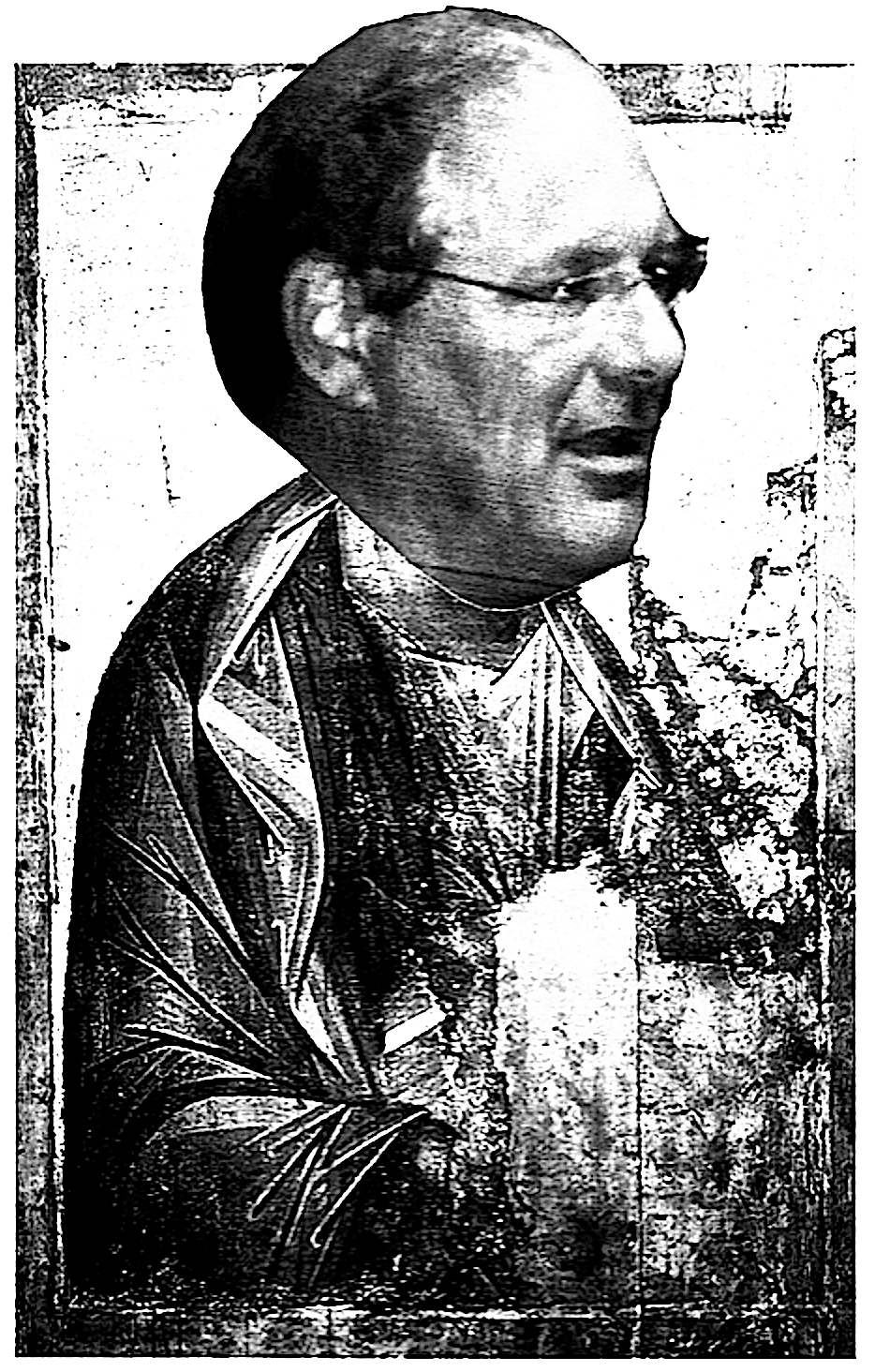 Dalrymple writes that in her speech on the basket of deplorables, Hillary Clinton divided people into
Dalrymple writes that in her speech on the basket of deplorables, Hillary Clinton divided people into
- the decent and correct, holding sterilised opinions on race, sex, identity and culture
- the deviant and incorrect, dwelling outside the limits of civilised society
La población se halla aquí dividida entre quienes tienen opiniones decentes, correctas, demostrablemente esterilizadas, sobre la raza, el sexo, la identidad nacional y el multiculturalismo, despojadas de todos los agentes contaminantes no autorizados, por un lado, y quienes, al desviarse del punto de vista correcto, se sitúan ellos mismos fuera de los límites aceptables de la sociedad civilizada, por otro.
 Correct opinion, Dalrymple notes, is nine-tenths of virtue. Anyone with wrong opinions is morally wrong: worse than a thief, a delinquent or a drunk, and much worse than a womaniser. Virtue is not the exercise of a discipline but the expression of an opinion; this has the happy effect of liberating behaviour.
Correct opinion, Dalrymple notes, is nine-tenths of virtue. Anyone with wrong opinions is morally wrong: worse than a thief, a delinquent or a drunk, and much worse than a womaniser. Virtue is not the exercise of a discipline but the expression of an opinion; this has the happy effect of liberating behaviour.
La mayoría de los intelectuales consideran ahora, además, que la opinión «correcta» son nueve décimas partes de virtud, por lo que cualquier persona que abrace las opiniones «erróneas» no está simplemente equivocada, sino que es moralmente mala: peor que, por ejemplo, un ladrón, un delincuente o un borracho, y mucho peor que un mujeriego. Actualmente la virtud no es el ejercicio de una disciplina, sino la expresión de una opinión: lo cual tiene, por supuesto, el feliz efecto de liberar la verdadera conducta.
For the Cæsaropapists, as Dalrymple calls them, words like racist, sexist, homophobic, xenophobic, Islamophobic are wonderfully elastic. Such epithets have negative connotations, of course; as to their denotations, well, they denote anything that the powerful, or those aspiring to power, say they denote. The point is not just to exercise power but to entrench it, moulding minds and obviating resistance.
Palabras como racista, sexista, homófobo, xenófobo e islamófobo son maravillosamente elásticas desde el punto de vista del nuevo Cæsaropapista, que desea no sólo ejercer el poder temporal sino también afianzarlo, moldeando las mentes de las personas de tal modo que les resulte imposible cualquier oposición real. Epítetos como los referidos más arriba tienen ahora connotaciones morales irreductiblemente negativas, pero en cuanto a qué es lo que realmente denotan… bueno, denotan cualquier cosa que el poderoso, o el aspirante a poderoso, diga que denotan.

‘When I use a word,’ Humpty Dumpty said, in rather a scornful tone, ‘it means just what I choose it to mean — neither more nor less.’ (Carroll, Through the Looking-Glass, Mervyn Peake illustration)
Dalrymple points out that in a world where representations of reality are more important than reality itself, control of the meanings of words is as important as, or more important than, control of parliaments.
En un mundo en el que las representaciones de la realidad son a menudo, o incluso habitualmente, más importantes que la realidad misma, el control de los significados de las palabras resulta tan importante como el control de los parlamentos, o anterior a este.
Take racism. It is, Dalrymple notes, no longer the doctrine that certain groups of people are inferior; it now means opposition to political prescriptions, often extraordinarily bureaucratic and job-multiplying, supposed to counteract racism. A racist is no longer a member of a gang that goes about lynching people, or an advocate of segregation in buses; it is someone who harbours doubts about, say, affirmative action, who apprehends that such a policy leads to falling standards, that it works against those who, having broken through, wonder if their success might not be due to racial condescension. A racist is also someone who denies that the differing levels of achievement of various groups is attributable entirely to injustice — of the kind that it is the duty of the State to correct.
La definición de palabras como racista es importante, porque a nadie, exceptuada una porción diminuta e insignificante de la población, le gusta que le llamen racista. Pero se trata de una acusación contra la que resulta cada vez más difícil defenderse. El racismo ya no significa la doctrina según la cual ciertos grupos de seres humanos físicamente identificables son biológica y moralmente inferiores y pueden, por tanto, ser tratados como tales. Es, más bien, la oposición a algún tipo de prescripción política, con frecuencia extraordinariamente burocrática y creadora de empleo, supuestamente con el propósito de contrarrestar el racismo, que es ahora más del corazón que de la verdadera conducta. El racista ya no es el integrante de una pandilla que se dedica al linchamiento o el defensor de la segregación en los autobuses, sino la persona que duda del acierto de la discriminación positiva porque no sólo conduce a un descenso de los estándares, sino que puede llegar a confundir a un negro que ha logrado abrirse camino y que no sabe si su éxito se debe a una suerte de condescendencia racial y no a su propio talento. Y se trata de una preocupación que ningún éxito ni logro pueden mitigar. Racista es también la persona que niega que las diferencias en el resultado alcanzado entre grupos humanos deben atribuirse entera y exclusivamente a una injusticia que es obligación del gobierno corregir y que asegura que esas diferencias en los resultados podrían haber surgido de otro modo.
 Dalrymple cites homophobia. It is no longer a wish to outlaw homosexual behaviour; it now applies when, for instance, people raise questions about homosexual marriage, as if such doubts are based on nothing but the most savage hatred. To be homophobic is to be put in the category of a member of a gang that goes around looking for homosexuals to beat up. Even wanting to discuss the matter is ultramontane: to deny the rightness, the good sense, the humanity of homosexual marriage is like believing that the Earth is flat — with this difference, that while the latter is a harmless eccentricity, the former is a moral enormity.
Dalrymple cites homophobia. It is no longer a wish to outlaw homosexual behaviour; it now applies when, for instance, people raise questions about homosexual marriage, as if such doubts are based on nothing but the most savage hatred. To be homophobic is to be put in the category of a member of a gang that goes around looking for homosexuals to beat up. Even wanting to discuss the matter is ultramontane: to deny the rightness, the good sense, the humanity of homosexual marriage is like believing that the Earth is flat — with this difference, that while the latter is a harmless eccentricity, the former is a moral enormity.
Homofobia no es un deseo de perseguir activamente a los homosexuales declarando ilegal su comportamiento incluso en privado, o atacándoles o humillándoles dondequiera que se encuentren; es, entre otras cosas, cuestionar el acierto del matrimonio homosexual, o plantearle objeciones, como si tal cuestionamiento u objeciones no pudieran sustentarse en nada más racional que la animosidad y los prejuicios más primitivos. Así, a la persona que, por motivos intelectuales, se opone (aun en la privacidad de su propia mente) a que se reconozca el matrimonio entre dos hombres como algo idéntico al celebrado entre un hombre y una mujer, se la colocará en la misma categoría que al integrante de una pandilla que se dedica a ir por las calles en busca de homosexuales para atacarlos. En este sentido, incluso querer examinar el asunto se convirtió en un signo de reacción virulenta o ultramontana, una suerte de tierraplanismo moral. Negar el acierto, el buen sentido o la humanidad del matrimonio homosexual es como persistir en la idea de que la Tierra era plana. Aunque con esta diferencia: que mientras que esto último no es más que una simpática excentricidad, lo primero es una enormidad moral.
 Few fret enough about the homosexual-marriage issue to risk the shame that dissent from orthodoxy would bring down on them if they protested, says Dalrymple. The issue has been decided by asymmetric warfare between a small number of monomaniacal activists, for whom the matter is of existential importance, and a large number of sceptics and opponents, for whom the matter is just one question among many, and not the most important.
Few fret enough about the homosexual-marriage issue to risk the shame that dissent from orthodoxy would bring down on them if they protested, says Dalrymple. The issue has been decided by asymmetric warfare between a small number of monomaniacal activists, for whom the matter is of existential importance, and a large number of sceptics and opponents, for whom the matter is just one question among many, and not the most important.
A pocas personas les preocupa el asunto lo bastante como para arriesgarse a sufrir el oprobio moral que haría recaer sobre ellos la pública expresión de disentimiento de la nueva ortodoxia. La cuestión ha sido decidida por el equivalente de la guerra asimétrica entre, por un lado, un número reducido de defensores entusiastas y monomaníacos, para quienes el asunto revestía una importancia existencial, y, por otro, un gran número de escépticos y opositores, para quienes era y es únicamente una cuestión entre muchas otras, y no la más importante.
This de facto silencing of even the mildest sceptical voices is normally associated with totalitarian dictatorships, Dalrymple notes. The self-imposed restriction on expression of heterodox ideas in public soon becomes self-censorship of our ideas, because none of us likes being a coward. The aim is to deny that there has been any suppression of freedom of thought at all.
El silenciamiento de facto de aun el más suave escepticismo ejerce en las mentes el tipo de violencia que normalmente se asocia con las dictaduras totalitarias más que con las democracias liberales. La negativa autoimpuesta a expresar ideas heterodoxas en una compañía «decente» o en público se convierte enseguida en autocensura de las propias ideas, porque a nadie le gusta tenerse por un cobarde; lo que busca, por tanto, es negar antes de nada que se haya producido ningún tipo de supresión.
Thus, on the issue of homosexual marriage, we should not ask
- how an idea that not so long ago would have seemed absurd, even unthinkable, cannot be questioned by anyone who wishes to be considered enlightened
- why those who have worked systematically to weaken marriage as an institution, calling it oppressive and stifling of all the potential beauty of human relations, now suddenly exalt it
- whether this enthusiasm is not, in fact, the means by which to weaken it further
- what will be next in the boundary-pushing agenda of social engineering
No deben preguntar cómo es que una idea que tan solo pocos años antes habría parecido absurda, ridícula, impensable incluso, se ha convertido en una ortodoxia incuestionable por parte de una persona que desee ser considerada ilustrada; no deben preguntar por qué aquellos que han trabajado sistemáticamente para debilitar el matrimonio como institución, defendiendo que es opresivo e inhibitorio de toda la belleza potencial de las relaciones humanas, lo exaltan ahora de repente de forma entusiasta; no deben preguntarse si este entusiasmo no es, de hecho, el medio con el cual debilitarlo aún más; no deben preguntar si cualquier persona prudente habría de echar por tierra la imagen que tiene de un acuerdo tan antiguo como el matrimonio sin siquiera una mirada retrospectiva; no deben preguntar qué será lo siguiente en la agenda de ingeniería social para acabar con los límites heredados, a pesar de que es perfectamente evidente que la caravana de reformas (como sucedió, de hecho, muy pronto) seguiría adelante. Tampoco deben darse cuenta de que eslóganes como igualdad ante el matrimonio o, en Francia, mariage pour tous, son, bien mentiras, bien pagarés para nuevas «reformas», como el matrimonio incestuoso o la poligamia y la poliandria, ya que, al fin y al cabo, también pueden ser acuerdos realizados entre adultos que consienten en algo (pueden encontrarse adultos que consentirán en casi cualquier cosa, y un ejemplo que viene al caso es el del hombre que quería comerse a alguien y que se emparejó, con éxito desde el punto de vista de la satisfacción del deseo mutuo, con otro que quería ser comido): porque, tras haber negado que el significado del matrimonio es lisa y llanamente la unión de un hombre y una mujer, no existe defensa alguna contra el posterior desplazamiento de los límites.
To stay out of Hillary’s basket, we must suppress thought or, better still, not think. The more important the subject, the more imperative it is to ignore it. It is our duty, if we do not wish to be classed as deplorable, to rejoice in what we regret, to take pleasure in what we have lost, to see in what is strange nothing but the friendly, the compatible, the enriching.
Hay tantos temas sobre los que, a fin de evitar acabar en el cesto, hay que suprimir ahora todo pensamiento o, mejor aún, no pensar, que esta persona se siente oprimida. Cuanto más importante es el tema, más tiene que ignorarlo. Es nuestra obligación, por tanto, si no deseamos que nos clasifiquen como deplorables, alegrarnos de lo que lamentamos, obtener placer de nuestra propia pérdida, no ver en lo extraño más que lo amistoso, compatible y enriquecedor, y concebir en general el mundo sin más como un montón de restaurantes diferentes.
 Dalrymple instances mass immigration. Are we concerned that too large an influx of people soaked in an alien culture will change our way of life? We must learn to curb this irrationality; we should remember that the way of life to which we are so attached is responsible for all the evils of the world, past, present and future. (This is the mirror image of the mission civilisatrice.)
Dalrymple instances mass immigration. Are we concerned that too large an influx of people soaked in an alien culture will change our way of life? We must learn to curb this irrationality; we should remember that the way of life to which we are so attached is responsible for all the evils of the world, past, present and future. (This is the mirror image of the mission civilisatrice.)
¿Le preocupa que una llegada demasiado grande de personas empapadas de una cultura extraña cambie un modo de vida al que se siente apegado? Debe aprender a superar su apego: porque, históricamente considerado, el modo de vida al que se siente apegado es responsable de todos los males del mundo, pasados, presentes o futuros. (Esta es, seguramente, la imagen refleja de la mission civilisatrice, y resulta al menos halagadora para nuestro engreimiento.)
Thus, on the issue of Muslim immigration, we are not allowed to ask if it is wise to take in so many people whose faith and conduct
- do not favour unrestricted intellectual inquiry
- spring from an uninterrupted tradition of punishing critics, if not eliminating them
- betray no conception of equality before the law
- if it is wise to take in so many people the influence of whose religion, in its most intransigent and evangelising form, looks like it is growing very rapidly
- what we receive, over and above a wider choice of restaurants and certain talented individuals that can be found in all groups, in return for the grave danger posed by a small minority
- what benefit these people bestow that is not on offer from other immigrants without the attendant danger
No debe siquiera pasársenos por la cabeza que quizá sea desaconsejable aceptar en nuestro seno a un número demasiado grande de personas cuya religión no favorece la indagación intelectual sin restricciones; que cuenta con una tradición ininterrumpida de castigar a los críticos, cuando no de eliminarlos; que no tiene concepción alguna de la igualdad ante la ley; y cuyo influjo en su forma más intransigente y evangelizadora parece ser hacerse más fuerte en la segunda generación. Nuestra autocensura debe producirse toda ella en nombre de una cualidad abstracta −la diversidad− que se da por supuesto que es buena incondicionalmente y sin reservas. ¿No debemos preguntar qué recibimos específicamente, además de restaurantes y de algunas personas de talento que pueden encontrarse en todos los grupos humanos, a cambio del peligro de plantean ahora una minoría de ellos, hay que admitir que muy pequeña? ¿Cuál es el beneficio que no pueda ser traído por otros grupos inmigrantes sin el peligro anejo?
To allow such thoughts to run through our heads even for a moment is to suffer the deplorable condition of Islamophobia. If we wonder whether Mohammedanism is compatible with intellectual freedom, it is a sign of a moral defect as well as of a psychopathology. We have an irrational fear, like that of spiders or of being locked in a room.
Dejar siquiera que estos pensamientos se te pasen por la cabeza durante un instante es padecer la deplorable condición de islamofobia: como si preguntarse si el islam fuera compatible con la libertad intelectual, especialmente en relación consigo mismo, fuera similar en su forma a un miedo irracional a las arañas o a estar encerrado en una habitación. Esta fobia, sin embargo, es tanto enfermedad como defecto moral (al contrario de la aracnofobia o de, por ejemplo, la adicción a las drogas, que es una pura enfermedad).
Wokeness, says Dalrymple, sows in the educated the fear of ostracism, of being an intellectual leper, of being locked up with the deplorables (to prevent the spread of the disease). And it infuriates the large numbers of people who neither subscribe to it nor benefit from it, and who feel that the energies devoted to trying to decide, for instance, which public toilets transsexuals should be allowed to use, is an insult to their own, much more pressing, problems.
Entre las clases educadas, la corrección política siembra el miedo al ostracismo social, a quedar relegados a un leprosario mental en el que se encierra a todos los deplorables para impedir que se propague su maligna enfermedad; pero enfurece a quienes ni la suscriben ni se benefician de ella, y a quienes sienten que la energía y el esfuerzo que se dedican a tratar de decidir qué baños públicos debería permitirse utilizar a los transexuales es un insulto a sus propios problemas, más acuciantes, pero desdeñados.
Moreover, writes Dalrymple, there is in political correctness an insufferable, oppressive, cloying pretension of superiority that needs a Dickens to satirise successfully.
En la corrección política hay una insufrible, agobiante, empalagosa pretensión de superioridad que sólo Dickens podría haber satirizado con éxito.








































